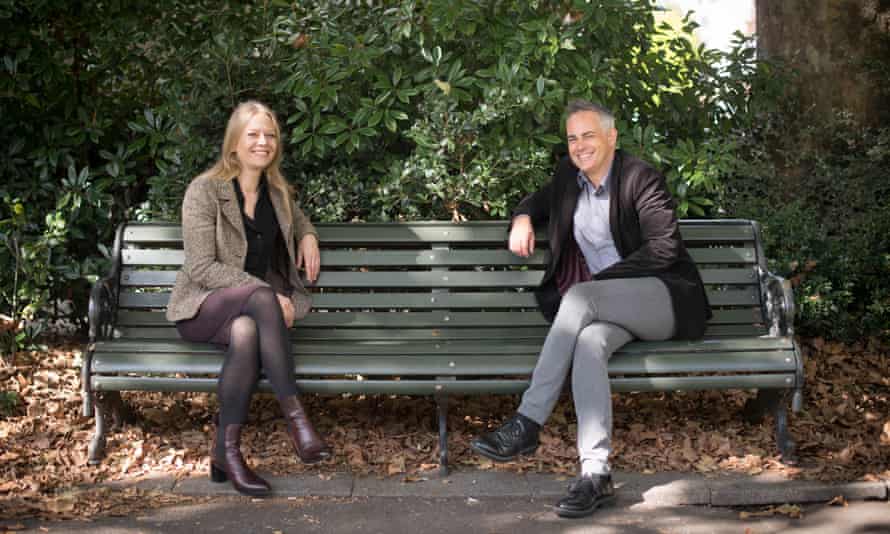Green party steps into unknown with latest leadership election
Contest is being described by some as a generational fight for future direction of party in England and Wales

Some senior party members describe it as a step into the unknown. Others call it a generational fight for its future direction, albeit a politely-fought one. What is clear is that in a few weeks the Greens in England and Wales will be under entirely new management.
The leadership battle, only a year since the last contest, has come after the incumbent duo of Sian Berry and Jonathan Bartley both decided to step down, after three years in the role for Berry and five for Bartley, initially as co-leader alongside Caroline Lucas.
Bidding to fill the vacancy are three candidacy duos and two individuals, a large field assisted by a party constitution that requires signatures from just 20 other members for people to stand.
The internal consensus is that barring a significant shock, the race is between Carla Denyer and Adrian Ramsay, longtime activists and parliamentary candidates, and Amelia Womack and Tamsin Omond, the current deputy leader and a co-founder of Extinction Rebellion.
The former pair are seen by supporters as arguably the safer choice in a period when the England and Wales Greens are involved in 16 council coalitions and run Brighton and Hove, while its sister party in Scotland is about to enter national government for the first time after a historic deal with the SNP.
The pair have won the backing of Lucas, the Greens’ sole MP, while Denyer is seen as a possible bet to follow Lucas into parliament in the Bristol West seat. “We’ve come a long way in the last few years, and Carla and Adrian will help keep us on track,” one backer said.
In contrast, Womack and Omond’s candidacy is viewed as geared more towards the priorities of younger, more recent members, notably the most robust action possible over countering the climate emergency.
If Womack is seen as, in the words of one supporter, “the safe pair of hands”, Omond’s longtime activism on areas such as climate and airport expansion is appealing to members who have also come via groups such as Extinction Rebellion.
A supporter of Womack and Omond said the pair arguably better represented the modern Greens: “A lot of our members now have only been in the party for two or three years, and Tamsin in particular reflects how they arrived.”
While the distinction is arguably over-simplified – Womack has been deputy leader for seven years, while Denyer, like many Greens, also has a history of direct activism – supporters on both sides agree that the choice could end up being significant as the party builds on healthy local election results, a solid national poll standing and growing public awareness of climate issues.
Added into the mix are internal party rows over trans issues and the party’s structures. This led to Berry’s resignation in frustration at the promotion to the frontbench of Shahrar Ali, a former deputy leader who is now standing for the leadership as a self-styled champion of female members who believe the trans debate has become polarised and excluding.
While some accuse Ali of exploiting the row to boost his candidacy, Womack and Omond are viewed as the candidates aligned most closely with the other side of the debate. Omond identifies as trans and non-binary, using the pronoun they – allowing the pair to stand, given party rules that state co-leaders must be “of different genders”.
Even if the particular disagreement can be resolved or put to one side, Berry’s resignation was as much about her powerlessness over Ali’s promotion.
Spokespeople roles are decided by the Greens’ executive committee, also elected by members, and in which the leader or co-leaders are just one voice among, currently, 17 people.
The Greens in England and Wales only started having a leader in 2008, and while those in the party value its member-led and sometimes freewheeling organisational structures, some argue reform is needed.
“We basically have a structure designed for a party with fewer than 10,000 members, and we now have more than 50,000,” one activist said. “It does maybe need looking at.”
As well as Denyer and Ramsay, Womack and Omond, and Ali, the other candidates standing are Martin Hemingway and Tina Rothery, longstanding environmental activists based in the north of England, and Ashley Gunstock, an actor who formerly appeared in The Bill and took on Lucas in the first ever leadership election in 2008.
It is clear that whoever wins, the Greens will be led by someone who is, in national political terms, a complete unknown.
However, one activist said this wasn’t entirely new ground: “We do sometimes make the mistake of thinking that our internal celebrities have some weight outside the party, but they really don’t.
“It’s only really Caroline who has ever broken through. Yes, Sian and Jonathan did a great job, but beyond the quite politically engaged, most people didn’t have a clue who they even were.”